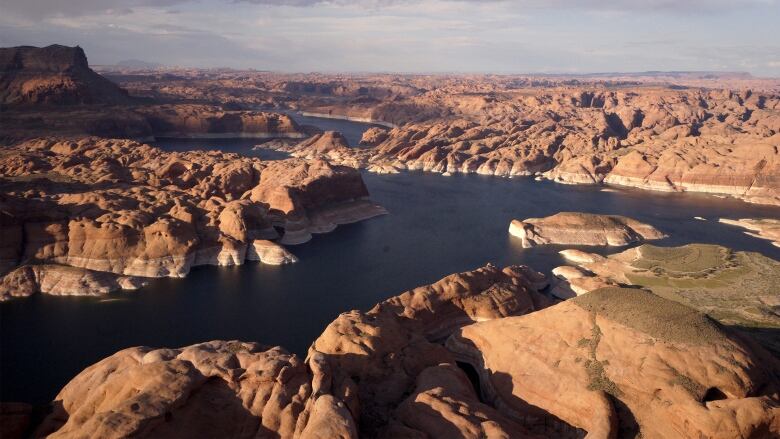Colorado River should have same legal status as a person: lawsuit

In March of this year, New Zealand marked a legal first: The Whanganui River was granted the same legal status as a human, with rights and protections.
A few months later, on Sept. 25, a U.S. environmental group, Deep Green Resistance, filed a lawsuit asking a judge to grant the same rights as a person to the Colorado River.
Denver lawyer Jason Flores-Williams who is helping to bring this case to suit says giving the Colorado River legal rights as an entity is "a way to balance the playing field."
"If you think about it, states, especially corporations have all sorts of legal rights and resources and they depend upon nature and finite natural resources for their interests," Flores-Williams tells The Current's Anna Maria Tremonti.
"So this is a way of equalling the playing field so that those natural resources, upon which all of life depends, have standing in courts."
Related: Giving legal rights to nature, animals would help protect the environment, says UBC legal expert
He argues injuries to those resources would then be validated legally which would result in "better outcomes with regard to the way everything on this planet interacts with one another."
"Usually what happens in environmental law as it stands right now in Canadian and American jurisprudence, is that there has to be some kind of injury to human beings for there to be standing."
Here in Canada, Katherine Morrisseau-Sinclair has been trying for years to get Canadians to view Lake Winnipeg as a person.
In 2014, she spent a month walking more than a thousand kilometres around the lake, bringing attention to the failing health of the world's 10th largest lake.
Indigenous people have viewed nature this way for thousands of year, but the recognition is legally groundbreaking and could inspire a new approach to protecting nature.
If the U.S. lawsuit is successful, Flores-Williams explains there would no need to show a resulting, immediate damage to a human being.
"Simply damage to the river itself — and that injury itself — would be something that we could take to the courts and have the courts recognize."

This case has been brought against the state and governor of Colorado, John Hickenlooper. The Current did invite him to comment, and his press secretary sent a statement that reads, in part:
"Colorado and countless partners have long understood the significance of the Colorado River system and the need to balance our needs for water with conservation and enhancement of the river ecosystem."
Colorado's Water Plan is there "to ensure sufficient water supplies for agriculture, cities, recreation and the environment as our state continues to grow," according to the statement.
In response to this comment, Flores-Williams says that "they've done as good a job as they can do with the current regime of laws that are based on property and ownership of the river."
But he argues the Colorado River is dying — "there's not enough of the river to go around."
"What we say is that, 'no, these kinds of relationships that are going to result in the death of the river, and therefore the death of everything that depends upon it," Flores-Williams tells Tremonti.
"And ultimately that does include human beings."
Listen to the full segment near the top of this web post.
This segment was produced by The Current's Willow Smith and Ashley Mak.